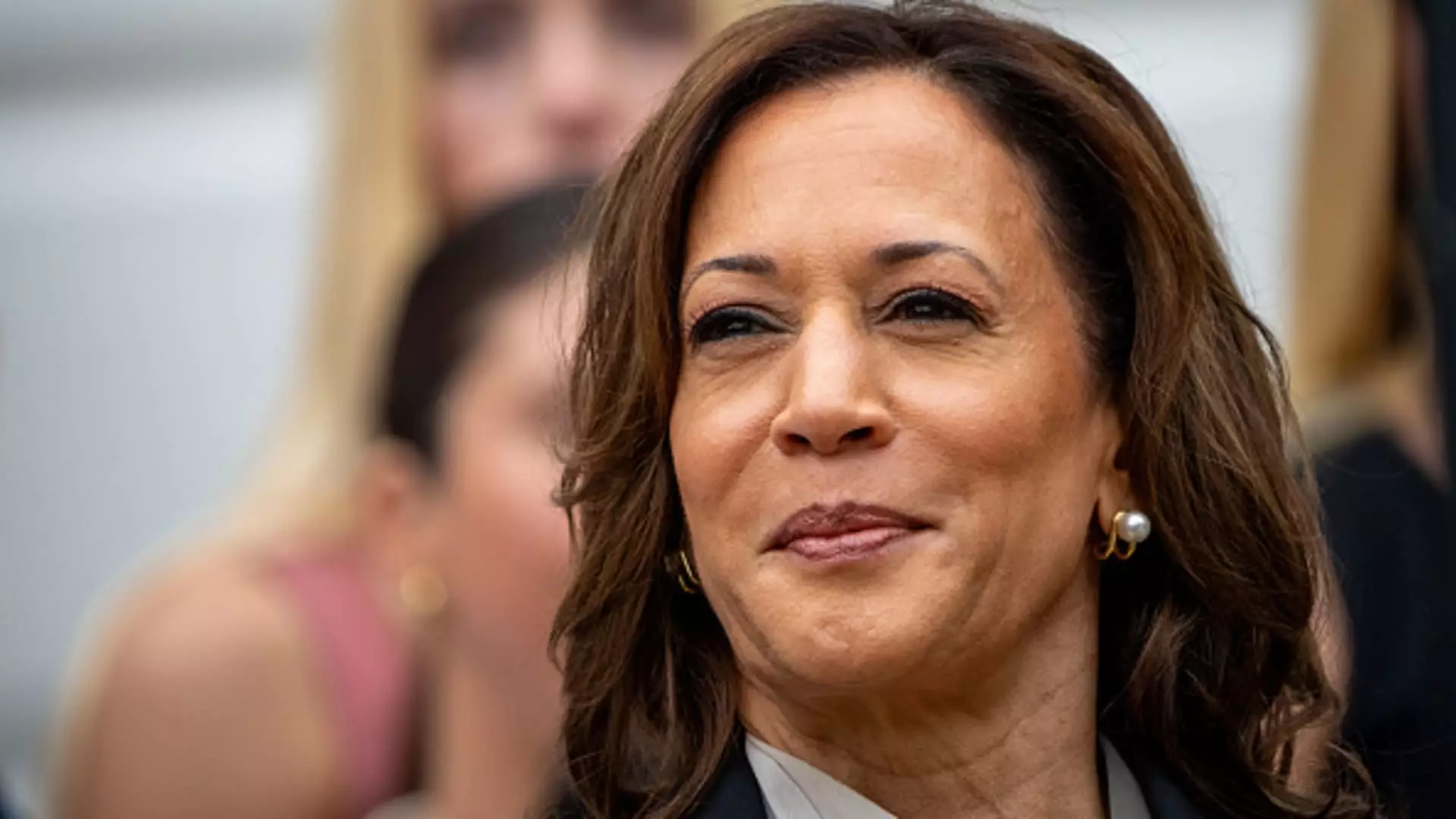In the context of an ever-evolving business landscape, the upcoming presidential election in the United States has significant implications for small and large businesses alike. A recent statement by Maryland’s Democratic Governor, Wes Moore, sheds light on Vice President Kamala Harris’s potential economic strategy should she ascend to the presidency. Moore, a close ally of the Biden-Harris administration, suggests that Harris’s focus would pivot towards fostering small business growth while encouraging larger industries to bolster competitiveness. This nuanced approach could redefine antitrust and regulatory policies previously characterized by stringent oversight.
Moore’s comments herald a notable departure from the current administration’s stance on regulatory measures, particularly regarding antitrust laws. The Biden administration has embraced a vigorous enforcement campaign against monopolistic practices and consolidations, frequently championing a narrative that positions large corporations as detrimental to economic fairness. In contrast, a Harris-led administration may pursue a more balanced approach, seeking to nurture the growth of small enterprises while still ensuring that larger corporations are afforded opportunities for competition and expansion. This dichotomy raises questions about the philosophical underpinnings of a pro-growth approach in an era where progressive values hold sway in Democratic politics.
As Moore articulated, the future of Harris’s policy approach will be influenced by the sociopolitical dynamics at play during her potential term. The electorate is increasingly conscious of the challenges facing small businesses, including rising inflation and resource accessibility. At the same time, there is a significant push for equitable competition that prevents monopolistic practices. In navigating these issues, Harris will likely need to develop innovative policy frameworks that reconcile the demands of different stakeholder groups while appealing to a broader Democratic base.
Another layer to this discussion is the evident interest from Wall Street as it anticipates policy shifts under a Harris administration. Prominent Democratic donors and corporate leaders have openly expressed support for a more lenient regulatory environment, particularly regarding mergers and acquisitions that would have previously faced intense scrutiny. The appeals made by figures such as Barry Diller and Reid Hoffman for a reevaluation of leadership within the Federal Trade Commission (FTC) signify a burgeoning corporate perspective that champions deregulation—a stark contrast to the preceding administration’s strong-arm tactics against large corporations.
While some lawyers and corporate advisors predict that Harris’s governance would entail a scaling back of the aggressive “big is bad” sentiment defining Biden’s regulatory strategy, others caution that any such shift is nuanced and not guaranteed. The reality of governance, especially with respect to independent agencies like the FTC, is that while leadership changes can occur, fundamental policy ideologies may remain constant unless explicitly redefined.
As Harris continues to shape her policy platform during her campaign, her balance between addressing essential consumer protections—such as price gouging and hidden fees—and fostering a business-friendly environment will determine her administration’s efficacy. The complexities of public sentiment toward corporate practices complicate the narrative: voters often support small businesses yet harbor concerns about large corporate interests, creating a duality that Harris will need to navigate carefully.
Effective communication will be critical for Harris as she delineates her strategy to ensure that economic policies attain the trust and support of citizens. She will need to articulate a comprehensive vision that incorporates elements of progressive ideals while addressing the stark requirements of both small enterprises and large corporations.
With the election campaign in full swing, the ambiguity surrounding Kamala Harris’s potential business policies remains a focal point of intrigue and speculation. While there are clear signs of a desire among corporate entities for a more lenient regulatory framework, it remains to be seen how deeply entrenched progressive policies and principles will influence her approach. As the political climate evolves, the interplay between supporting business growth and upholding regulatory scrutiny will undoubtedly shape not only the economic landscape but also the future of the Democratic Party’s platform. In the end, voters and industry leaders alike will be keenly observing how Harris navigates this complex terrain in her quest for the presidency.


Leave a Reply